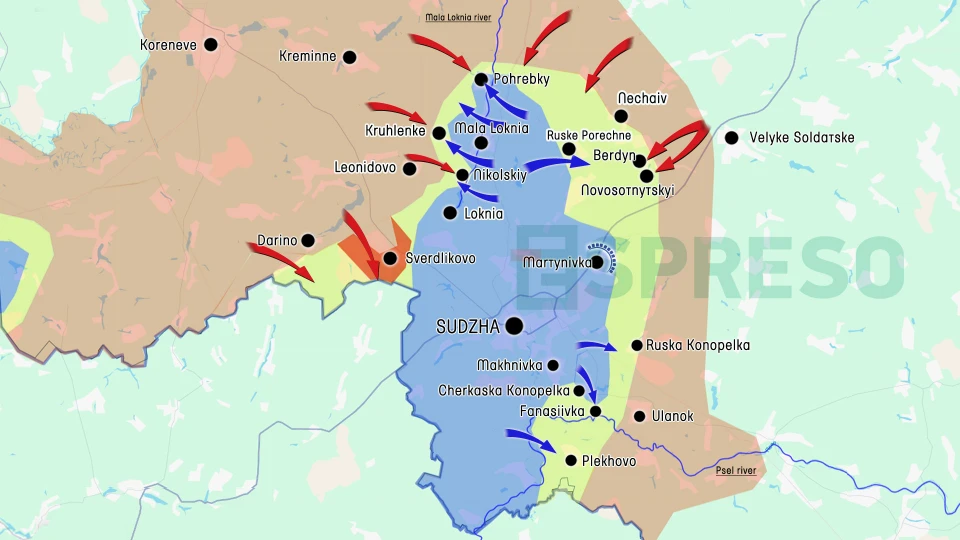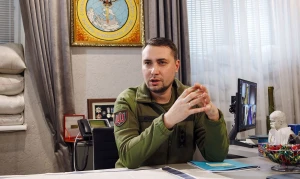
Turkey blocks Bosphorus: allied patrols and Russian threats. Serhiy Zgurets' column
Patrolling is an insufficient measure to ensure security in the Black Sea amid a freeze in hostilities under U.S. pressure
Turkey's role
Andriy Klymenko, head of the Monitoring Group at the Black Sea Institute of Strategic Studies and chief editor of BlackSeaNews, believes that Turkey will not open the Bosphorus Strait until the war ends.
"Regarding patrolling, it currently looks unrealistic. In 2022, Ukrainian security experts, together with the Minister of Defense, proposed creating a mine-clearing group consisting of three countries - Turkey, Bulgaria, and Romania - to combat mines. However, by 2024, only two naval operations per week had been scheduled out of 365 days," he noted.
According to Klymenko, patrolling should be conducted using sonar systems to monitor both air and underwater spaces due to the threat posed by Russian unmanned boats. He emphasized that this is a complex task currently carried out by Ukraine’s naval forces using small vessels, particularly high-speed boats equipped with mine countermeasures and radar systems. So far, these efforts have been successful. However, if these patrol strategies change, the security of the maritime corridor could be at risk.
Turkey does not want to increase risks and will keep the straits closed, Klymenko said: "They understand that allowing military ships through - including Ukrainian Navy surface vessels (four minesweepers have already been delivered), as well as NATO warships from non-Black Sea countries and part of the Russian Black Sea Fleet (missile ships, submarines, and reconnaissance vessels) that were cut off from their bases in 2022 due to the closure of the straits - would increase the risk of escalation."
Turkey has significant offshore gas reserves that it does not want to put at risk.
Ankara understands that during wartime, with an increasing number of military ships and drones in the region, there is a risk that a missile or shell could hit its offshore drilling platforms at the Sakarya gas field, where it has invested $5–7 billion. Therefore, Turkey will take all possible measures to prevent such scenarios.
Security in the Black Sea
Yesterday, the British Prime Minister visited the United States. Previously, there was talk about a project to send European peacekeepers to Ukraine, and the draft proposals developed by France and Britain also mention the Black Sea. It is about patrolling certain forces in the Black Sea after a ceasefire or freezing of hostilities.
On the one hand, there is a draft proposal from the UK. However, there is a risk that announcing such ceasefire options could create conditions for the return of the Russian Black Sea Fleet to occupied Crimea, allowing it to regain dominance in the western part of the Black Sea. Russian forces could resume their activities, while Ukraine’s long-range strike capabilities might lose the ability to target key military and infrastructure sites in Crimea and along the Black Sea coast.
Andriy Klymenko believes that a ceasefire is unlikely to happen. Regarding the existing risks, he noted that Ukraine and its allies in the UK and France have only recently emphasized the importance of maritime security. The situation at sea has remained relatively calm, aside from missile and drone attacks on Ukrainian port cities such as Odesa, Pivdennyi, and Chornomorsk.
"During the so-called UN corridor, an average of two ships per day entered our ports in Odesa Oblast, whereas in 2024, this number has increased to approximately seven to eight ships daily. This stable situation indicates the success of Ukraine’s Defense Forces, particularly the Navy, in escorting vessels. It is a complex and challenging operation that is not publicly discussed on a daily basis - which is the right approach. This operation ensures the safety of navigation in the western part of the Black Sea," he noted.
It is known that 42 ships and boats of Russia’s Black Sea Fleet have been sunk or damaged due to Ukrainian military actions. The Black Sea Fleet is now afraid to leave its base in Novorossiysk, only occasionally conducting attacks before quickly retreating under protective cover.
Monitoring of Crimea’s use as a launch platform for strikes on Ukraine also indicates a decrease in activity. This is a direct result of Ukrainian forces striking occupied Crimea.
"We absolutely do not need a situation where, under so-called ceasefire pressure from the United States, Russia redeploys its forces to Crimea, reinforcing missile systems and aviation there, and regaining control over the western Black Sea as it did in 2022," Klymenko remarked.
There are also risks that, following the shocking drone boat attacks on its Black Sea Fleet, Russia is actively developing its own maritime drones - both surface and underwater - using its industrial capacities.
With over 200 vessels, 90% of which are owned by companies from 25 different countries rather than Ukrainian shipowners, transporting Ukrainian goods, it is clear that this export brings vital funds to Ukraine’s war effort. This creates challenges for the enemy, and they will do everything possible to disrupt the operation of this maritime corridor.
The issue of the demilitarization of Crimea and the Black Sea may be unrealistic, according to the head of the Monitoring Group at the "Black Sea Institute of Strategic Studies."
"After the de-occupation of Crimea, there must be an international missile defense base there to protect Europe from Russian missiles. Today, the demilitarization of Crimea after its liberation is unnecessary for either Ukraine or Russia, which uses it to control the Black Sea. This would only be possible after Russia's military defeat," he added.
Regarding European Union and European countries' sanctions against Russia's "grey" tanker fleet, there have been no changes in maritime oil exports. Reports suggesting that some countries refuse to service tankers from sanction lists are false. U.S. sanctions have been effective due to the risk of secondary sanctions. In contrast, sanctions imposed by the UK, the EU, and Canada remain largely declarative. For sanctions to be effective, there must be a ban on the use of these countries' maritime spaces and economic zones, Klymenko stated.
Frontline situation: Kursk
There are three key directions where the enemy is exerting pressure: the North, the West, and the Southeast. According to analysts, fighting is ongoing in the areas of Pohrebky and Lebedivka. Lebedivka is located near Sverdlykove, which the enemy recently regained control over. The situation is further complicated by the fact that a road leads from Sverdlykove to Sudzha and then to Sumy, where the enemy is attempting to disrupt Ukrainian logistics.
On the route from Sudzha to Sumy, there are settlements such as Pysarivka and Yunakivka, where the enemy is using fiber-optic-guided drones to target Ukrainian logistics routes. In response, Ukrainian forces are conducting strikes with frontline aviation, targeting enemy positions, including drone operator groups attempting to attack Ukrainian military vehicles.

Yesterday, it was reported that North Korea has sent new units to the Russian Federation, including engineering and reconnaissance units that have not been used by the North Korean army before. This data is based on information from South Korean intelligence, although no specific details were given. They were obtained with reference to their own sources in a South Korean media outlet, which stated that about three thousand North Korean military personnel were deployed to Russia in January and February, but this has not yet been confirmed.
Recently, the heads of the Defence Intelligence of Ukraine gave comments to South Korean media, stating that there has been no observed redeployment of new North Korean units. However, Kyrylo Budanov and Vadym Skibitskyi noted that North Korean personnel are undergoing training on Russian military equipment, which may be used in combat zones. As of now, there is no confirmed deployment of new North Korean forces, but Ukrainian intelligence reports the transfer of new equipment, including self-propelled artillery units (SPGs) and KN-23 missiles.
Previously, 12,000 North Korean troops were stationed in Russia’s Kursk region, of which 4,000 have lost combat capability.
- News












































